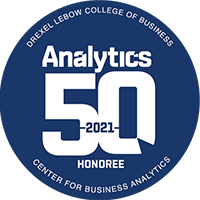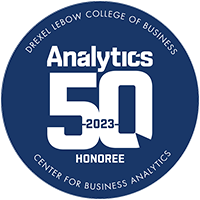Hello world!
My name is Michelle Caler, and I am Freya’s most junior Data Scientist. As I mentioned in a previous blog post, I used to be an Instructor in the Department of Physics and Engineering at West Chester University of Pennsylvania. Making the decision to leave academia was not something I did overnight, and it was incredibly scary; however, it turned out to be the right decision for me at that particular stage of my academic career.
With all of the upheaval that the COVID-19 pandemic has brought about, I know that there’s a not insignificant number of academics who are thinking about leaving the ivory tower; with that in mind, I would like to use this blog post to share some thoughts on my transition from the academic world to the business world.
Where to Start?
Some of the most prominent pieces of advice I encountered when reading about transitioning from academia to business was about having a supervisor.
I can understand why many academics would chafe under the idea of someone telling them what project they are to work on and what approaches they should use, but I’ve found (at least with Freya’s company values) that you still have plenty of leeway to explore fresh approaches to problems and to push back if the recommended approach simply is not going to work. And how many academics have stuck with a bad project just because no one was there to tell them to move onto something else? It may take some adjustment to regularly report on your progress to someone, but that’s necessary to make sure that budgets are being met and that the project is meeting requirements set out by the client (either external or internal). And who knows? Maybe there’s some budget for you to complete a self-directed project like a new, proof-of-concept tool or a better analysis pipeline. Ask your supervisor about it.
Utilizing Your Network Connections
This is the other frequent, prominent piece of advice I encountered. And I’d agree with it. Do some networking. However, I’d encourage any academic considering leaving academia to “think outside the box,” as it were, when considering their network. Don’t be afraid to reach out to students you’ve taught who have graduated. They might be able to give you some advice or point you in the direction of valuable resources.
Perhaps some of your collaborators know graduate students or post-docs who have successfully made the transition. Of course, attend any and all networking events that you feel comfortable with, but consider what your existing academic network can do for you.
Finding the Right Path Forward
Just like in academia, the fit is very important in the business world. Before you start applying to non-academic jobs, spend some time thinking about what sort of business environment would be right for you, just like you would think about what sort of college or university, or lab would be the best fit for you.
Perhaps you’d feel more at home in a large company with a large department or division devoted to your line of work; perhaps you’d feel more at home in a smaller company where you’d be part of a small team. That’s something you should have a feel for before sending out that first application.
When a job post catches your eye, do some homework to see what the company culture is like and what the company values are. Do they align with what you want? If not, this may not be the opportunity for you. Do the sorts of projects you’d likely be doing for this company match your interests and skillset? If not, this may not be the opportunity for you. This isn’t to say that you should hold out for your dream job—by all means, apply to as many places as possible—but don’t blindly send off that resume to places you’d be miserable at. (You have converted your CV to a resume, right?)
Gaining New Skills to Learn
Don’t be afraid to go back to school to learn new skills. This doesn’t necessarily involve enrolling in a degree program at a college or university (although it certainly can if that’s what you need to move on to your new role); it could mean enrolling in a coding bootcamp, or learning through an online “learn to code” website like Udemy or Codecademy.
As an academic, you’re pretty good at learning new things. And of course, you’re not starting from scratch with building new skills: you already have a wealth of experience in your particular subfield which you can build on. If you’re considering making the transition to data science, make sure you are building up that portfolio! Demonstrate to businesses that you know how results are communicated in a corporate environment, that you know how to construct an informative plot that clearly communicates the story you want to tell, that you know how to use standard tools and analysis methods and that you can produce clean, readable code that gets the job done efficiently and quickly. Don’t let your papers do all the talking for you.
Letting Go of Fear
Lastly: don’t be afraid to work your way up the experience ladder again. Depending on your field and your particular interests, you may not have to. But if you want to switch fields, or move on to a different subject area entirely, you may find that you need to start out with an entry-level position. And that’s OK! As an academic, you have the drive to excel that can lead to promotions and pay raises, and with a little experience under your belt many new opportunities may present themselves.
I know I’m not really saying anything new in this blog post, but maybe hearing it from a fresh perspective can help you separate out the advice that’s best for you from all the noise out there (and believe me there is A LOT of noise out there). If you’re an academic considering making a jump to the business world, good luck! And to all who’ve read this far, thanks for taking the time to read.




